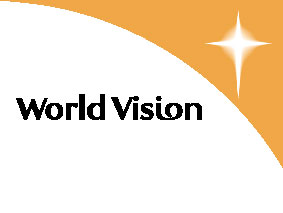Are You Buying A 'Blood Diamond' For Your Fiancée This Christmas
Published 12-08-06
Submitted by World Vision
Five years later, despite legislation and promises of oversight by the diamond industry and U.S. government, diamond companies still don't do enough to prevent the stones from being used to purchase weapons, fuel wars and create havoc in countries where most people live on less than $1 a day.
"Diamonds are a $60 billion a year business, and even if only one percent of the retail market includes gems that fuel conflicts in African nations, that's $600 million worth of cheap assault rifles and rocket launchers killing thousands of people every year," says Rory E. Anderson, an expert on the illegal diamond trade with the Christian aid agency World Vision. "It's unconscionable."
Anderson recently attended a private screening of the new film, "Blood Diamond," starring Leonardo DiCaprio, which opens Friday, December 8, nationwide, and will again bring the illegal, unethical and immoral diamond trade to the public's attention.
"In Sierra Leone, where 'Blood Diamond' is set, the conflict ended years ago, and diamonds are coming under legitimate control," says Anderson. "But there are still countries, like the Democratic Republic of Congo, where diamonds and other resources are being sold illegally, and diamond warlords use proceeds to fund rebel conflicts."
The solution to the problem, according to World Vision, is not a diamond boycott, but rather consumer pressure where the industry will feel it most: at the jewelry store and in Congress.
"The legitimate diamond industry in countries like South Africa, Botswana and Namibia provides livelihood and vital public services," said Anderson. "We don't want to hurt their efforts in the process of stopping the illicit trade elsewhere."
Before buying diamonds, Anderson says, consumers should ask retailers about their policies on "blood diamonds" and whether they can certify their diamonds are not funding conflict. If such certification cannot be presented, inquire about other retailers who can.
"We want to remind the public, especially during the holiday season, to ask their jeweler about the '4 C's' in diamond buying - carat, cut, clarity and conflict," she says. "We also urge people to contact their members of Congress and ask why more is not being done to prevent the import of 'blood diamonds.'
Americans buy two-thirds of the diamonds on the global market, and according to a 2004 study by Amnesty International and Global Witness, 58 percent of diamond retailers in the U.S. and U.K. had no policy on conflict diamonds.

World Vision
World Vision
World Vision is a Christian relief and development organization dedicated to helping children and their communities worldwide reach their full potential by tackling the causes of poverty. World Vision serves the poor regardless of a person's religion, race, ethnicity, or gender. For more information, visit www.worldvision.org.
More from World Vision

